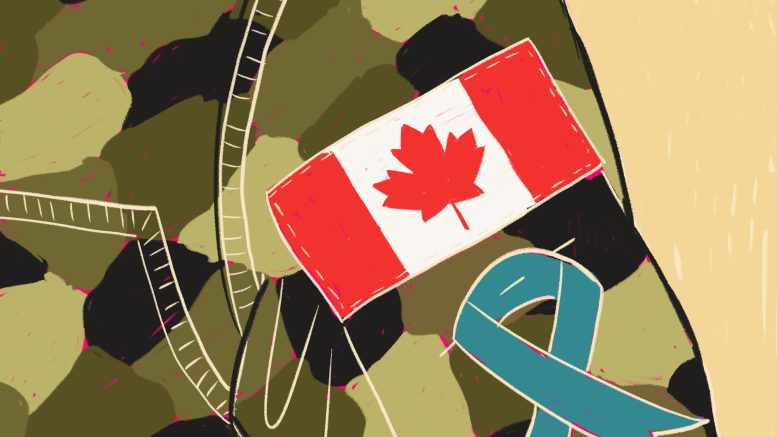New revelations concerning sexual assault and misconduct in the Canadian military continue to trickle into the public domain. Nearly every week since February 2021, Canadian news has been struck with new information about the Canadian Armed Forces’ (CAF) deplorable conduct regarding sexual violence. This time, Canada’s former highest-ranking military commander general Jonathan Vance pleaded guilty for obstruction of justice in a sexual misconduct case.
Vance reportedly fathered a child with Maj. Kellie Brennan — a former subordinate ranking officer — and had clearly exploited his position to advance his sexual relationship with her. Brennan testified that Vance made his position of power in the CAF clear throughout the relationship, claiming he made statements about being “untouchable” and saying that he “owned” the military.
News of Vance’s sexual misconduct case broke in February 2021, a few months before he retired. The high-coverage case led to a tsunami of survivors coming forward to tell their stories of sexual violence. Since then, 11 senior military officials have been involved in trials regarding a variety of harrowing sexual assault cases. But this concerningly large number of officers in extreme positions of power doesn’t come close to scratching the surface of the crisis at hand. Roughly 20,000 members of the Canadian military have applied for a $900-million class action settlement to cover the sexual violence and subsequent mishandling of their grievances, and more are bound to come forward.
These concerning revelations are not new. The problem of sexual exploitation and violence in the military has been a well-known subject since Maclean’s covered the issue in an influential article in 1998. Maclean’s interviewed 13 women who served in the Canadian military and noted that “The cases also reveal a culture — particularly in the navy and combat units — of unbridled promiscuity, where harassment is common, heavy drinking is a way of life, and women […] are often [considered] little more than game for sexual predators.”
Many pundits continue to argue that to solve sexual violence in the military, a “fundamental culture change” is necessary. Even after then-Supreme Court justice Marie Deschamps conducted an external review into sexual violence in the CAF in 2015, nothing in the culture has shifted. As Global News reporter Amanda Connolly suggested, “Sexual misconduct in the Canadian Forces remains as ‘rampant’ and ‘destructive’ in 2021 as it was back in 2015 when a landmark federal report first documented the extent of the problem.”
According to most pundits, solving sexual violence in the military must begin with dismantling the masculinity that defines the CAF’s culture. A part of challenging this culture over time has been to solve the disproportionate number of men relative to women in the military. Over the years, the total proportion of women in the military has grown steadily, yet the crisis seems just as bad as it was in 2015.
The problem with this approach is that it fails to recognize masculinity as a character trait that is constructed over time and is not, as some may assume, a natural fact of sexuality. Senior researcher and lecturer of gender studies at the University of Basel Elizabeth Mesok argues, “by collapsing military sexual violence within a broader campaign for military women’s equality, rape is conceptualized as a violent action against women, rather than an act of gendered and militarized violence endemic to a hyperaggressive military culture.”
In other words, it will be fundamentally impossible to solve a culture issue in an institutional environment that pays people to commit and morally justify heinous acts of violence abroad. The violence people are trained to conduct in conflict zones permeates internally, creating victims within the CAF’s own ranks. Education about the culture of sexual violence will not be enough when military institutions train people and give them a license to exert general violence upon other humans.
This is not to say that placing mechanisms within the CAF that are victim-friendly will not ameliorate its hostile sexual environment, but that the military will always be a site of sexual violence if it is not defunded and dismantled. Having such radically high rates of sexual violence is indicative of a systemic issue of abuse, trauma, power and hierarchy. Studies have shown that jobs with more ready access to control through hierarchy and power have higher rates of domestic abuse — like the police. There is a social connection between jobs that attract people with a pathological desire for control and systemic issues of violence.
Talking about a “culture shift” within the military reflects a similar logic to giving officers body cameras to prevent police violence — it may look like a solution, but the underlying issues remain unresolved. If Canada wants to solve its military’s sexual violence issue, it must defund the CAF.




